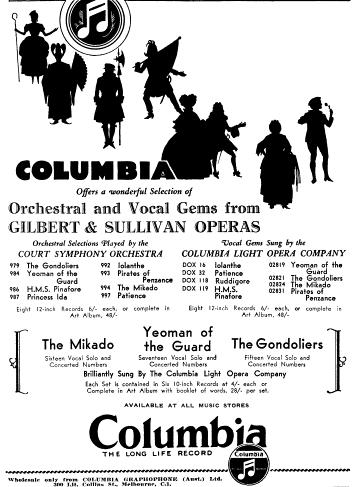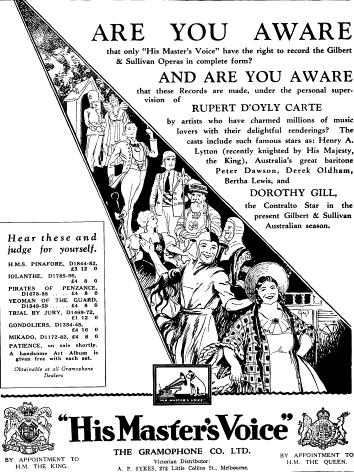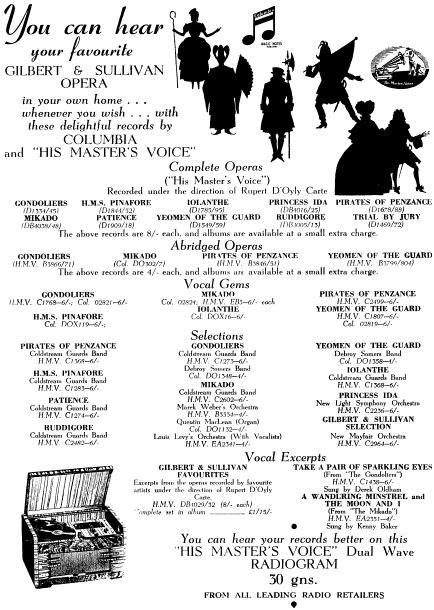Competition between Columbia and
HMV in the 1930s
In the early 1930s, both Columbia and HMV issued abridged recordings of the four G&S operas apiece on 10" discs. The Columbia sets came first, and the HMV sets apparently were issued as a direct response to the competition.
Australian correspondent Robert Morrison provided scans of advertisements that appeared in the theatre programmes issued for the J. C. Williamson Gilbert & Sullivan Opera Co. during its 1931 Melbourne season at the Theatre Royal. (Savoyards in the company included Ivan Menzies, Leo Darnton, Gregory Stroud, Bernard Manning and Dorothy Gill — who was recalled by the D'Oyly Carte midway through the season to assume the contralto roles after the death of Bertha Lewis. Rupert D'Oyly Carte sent Evelyn Gardiner out to Australia as her replacement.)
The Columbia advert lists a number of orchestral selections and "vocal gems," as well as the three abridged sets available at that time (Mikado, Yeomen and Gondoliers):

|
The HMV advert is more strident in its tone. "Are you aware," it asks, “that only 'His Master's Voice' have the right to record the Gilbert & Sullivan operas in complete form? And are you aware that these records are made under the personal supervision of Rupert D'Oyly Carte?”

|
Ironically, British Columbia and HMV would merge to form EMI, and their Australian subsidiaries followed suit. The following contemporary advertisement for the H.M.V. and Columbia G & S opera sets was included in a souvenir theatre programme for the J. C. Williamson Gilbert & Sullivan Opera Co. during its 1940 Sydney season at the Theatre Royal:

|
Robert Morrison adds:
Savoyards in the company then included Ivan Menzies, Evelyn Gardiner, Viola Wilson, Adelaide-born Richard Watson, Gregory Stroud and Bernard Manning. The season was conducted by Andrew MacCunn, the brother of Scots composer Hamish MacCunn who had conducted the original British productions of the Edward German operas.
It was during the return Sydney season in 1941 that 16 year old Charles Mackerras played oboe in the orchestra pit, and no doubt started making mental notes for his future arrangement of the score for Pineapple Poll. (Incidentally — unlike the D'Oyly Carte productions of the time — Australian revivals of Ruddigore always included the first act duet "The battle's roar is over," thus Mackerras's subsequent familiarity with the melody explains his inclusion of it in his ballet score.)
